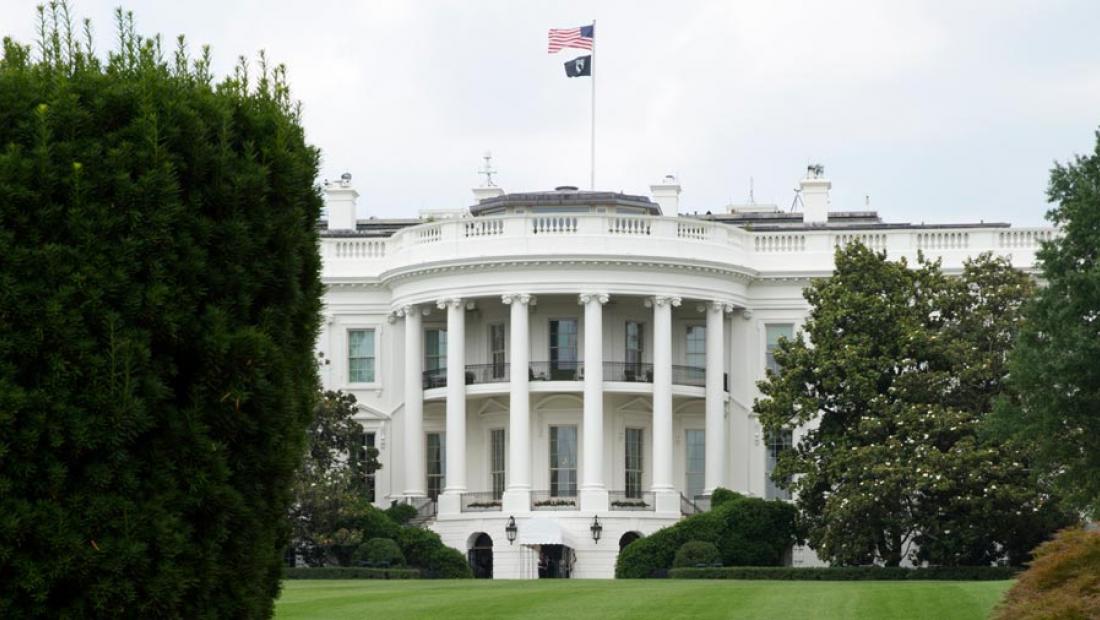OSTP Trumpets Trump Tech Efforts

The smarter way to stay on top of broadcasting and cable industry. Sign up below
You are now subscribed
Your newsletter sign-up was successful
The White House Office of Science and Technology Policy (OSTP) says the Trump Administration has been an "an active and meaningful driver for science and technology policy in America," including clearing away some impediments to the rollout of 5G and rural connectivity.
That came in OSTP's Science & Technology Highlights Report.
The FCC has been taking various steps to ease that rollout, including shot clocks on citing decisions and streamlining historic and environmental reviews.
OSTP does not talk specifically about the FCC--the report focuses on the non-independent agencies like the National Telecommunications & Information Administration and the National Institute of Standards and Technology (both part of Commerce), DOE and others--but it does talk generally when promoting its rural connectivity efforts, about "Federal agencies taking action to in-crease private sector investment in broadband [the FCC's Republican majority argues that includes deregulating internet access], including streamlining Federal permitting, leveraging Federal assets, and maximizing the impact of Federal funding [again, the FCC majority has argued that includes efforts to reduce waste, fraud and abuse in government broadband subsidies to low-income, often rural, Americans].
Related: White House Holds 5G Summit
The report also talked up the President's directives on a national 5G plan as well as what was billed last fall as the first cybersecurity strategy in 15 years and his executive order this month on AI R&D and education.
Interestingly, there was no explicit mention of Internet of Things (IoT) policy, which the Administration has signaled is a high priority.
The smarter way to stay on top of broadcasting and cable industry. Sign up below
It does point out under the "Cybersecurity" heading that the Administration last May released a report, with the mouthful of a title: The Enhancing the Resilience of the Internet and Communications Ecosystem Against Botnets and Other Automated, Distributed Threats, that "offers a guide to government, civil society, and industry actions that would dramatically reduce the threat of botnets and similar cyber attacks and provides "goals and suggested actions that would improve the resilience of the Internet ecosystem."
In addition, under the "Privacy" heading, the report points out that NTIA has sought comment on a way to "advance consumer privacy while protecting prosperity and innovation," while NIST had initiated development of a Privacy Framework that it envisions will be a voluntary tool for organizations to better identify, assess, manage, and communicate about privacy risks so that individuals can enjoy the benefits of innovative technologies with greater confidence and trust."
Both obviously implicate an "internet of everything" world where information is traveling over a web of connections between and among everything from nuclear power plants and connected car to fitness trackers, TVs and toasters.
NTIA has not been quiet on the subject, though it has suggested the government should not rush to regulate IoT.
"If we want to realize the innovation and growth promised by IoT, we must ensure that Americans can trust the devices that they’re using," NTIA administrator David Redl told the 6th Annual Internet of Things Global Summit in Washington Oct. 5.
Contributing editor John Eggerton has been an editor and/or writer on media regulation, legislation and policy for over four decades, including covering the FCC, FTC, Congress, the major media trade associations, and the federal courts. In addition to Multichannel News and Broadcasting + Cable, his work has appeared in Radio World, TV Technology, TV Fax, This Week in Consumer Electronics, Variety and the Encyclopedia Britannica.

